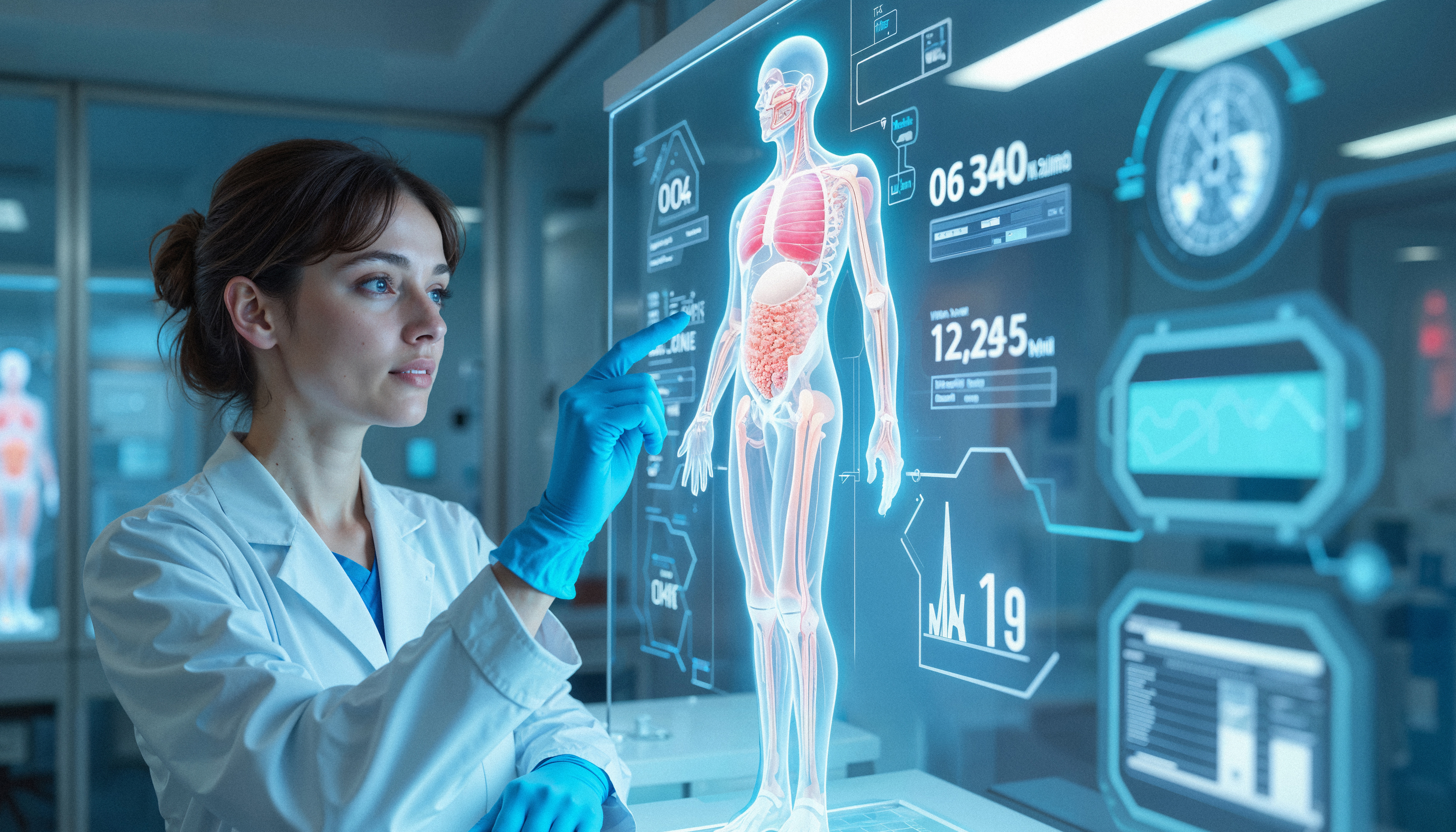There are no items in your cart
Add More
Add More
| Item Details | Price | ||
|---|---|---|---|
Aug 7, 2025
Imagine walking into a clinic and getting a treatment plan crafted just for you—based not only on your symptoms but also on your genes, lifestyle, environment, and even your gut microbiome. That's personalized medicine in a nutshell. It's healthcare tailored like a custom suit, fitting each patient perfectly.
Why Traditional Medicine Falls Short
Traditional medicine treats people based on population averages. But you're not a statistic—you're you. That's where conventional medicine misses the mark. One-size-fits-all doesn't cut it when your body, genetics, and experiences are unique.
AI isn't the future—it's already here. From reading X-rays faster than radiologists to flagging anomalies in EHRs, artificial intelligence is quietly revolutionizing medicine. It saves time, increases accuracy, and reduces human error.
With wearable devices, genomic sequencing, and electronic health records, data is everywhere. But without AI, it's just noise. AI turns that noise into a symphony of insights—one that leads to smarter, sharper treatment decisions.
AI-driven treatment plans use algorithms to recommend therapies based on a person's unique health data. Think of it like Google Maps for your health journey—constantly rerouting and optimizing the route based on real-time information.
This isn't guessing. It's guided by vast oceans of clinical data.
These are the brains behind AI. They recognize patterns humans can't and improve as they process more data. It's like teaching a dog new tricks—but the dog gets smarter every second.
NLP helps AI "read" and understand unstructured medical notes, lab reports, or doctor comments. It bridges the gap between raw data and readable insights.
AI can predict future health issues before symptoms appear—think of it as your health's crystal ball. It integrates info from genetic data, past treatments, wearable trackers, and more to give actionable forecasts.
AI analyzes tumor genetics to recommend drugs that target specific mutations. For example, IBM Watson helped recommend treatment plans in complex cancer cases faster than human experts.
By analyzing heart rate patterns and lifestyle data, AI can predict cardiac events before they happen. One study showed AI spotting atrial fibrillation 30 days before onset—lifesaving stuff.
AI can spot rare disease patterns that might take doctors years to diagnose. For families wandering the diagnostic wilderness, AI is the compass that finds the path home.
No more gambling with treatments. AI matches you with options that have worked for patients like you—giving you a head start on healing.
Because treatments are personalized, they're more likely to work and less likely to cause harm. It's goodbye to guesswork, hello to smart choices.
Smarter treatment plans mean fewer hospitalizations, less waste, and quicker recoveries. AI doesn't just improve care—it trims the fat off your medical bills.
Your health data is gold—and hackers know it. As AI becomes more prevalent, the stakes get higher. Secure encryption, robust policies, and transparency are crucial.
If the data going in is biased, the output will be too. AI must be trained on diverse populations to avoid health disparities and unfair outcomes.
Can patients trust a machine's decision? Should doctors always follow AI suggestions? These questions redefine the doctor-patient relationship in a high-tech world.
AI might crunch numbers, but doctors interpret them with context, compassion, and experience. It's a partnership—not a power struggle.
Doctors + AI = supercharged care. While AI handles the data overload, physicians focus on what they do best: human connection and critical thinking.
Countries like the US, UK, and Singapore are pouring billions into AI-healthcare. Expect wider adoption in primary care, specialty clinics, and even remote villages.
Picture robotic surgery guided by AI in real-time, or nanobots programmed for precision drug delivery. This isn't sci-fi—it's just around the corner.
AI is not replacing medicine—it's redefining it. Personalized treatment plans driven by artificial intelligence are more than just a trend. They're a turning point. By blending science with smart data, we're stepping into a future where healthcare isn't just reactive—it's proactive, predictive, and profoundly personal. And in that future, you won't just be another patient file. You'll be the center of a treatment plan that sees you.
1. What is the main difference between traditional and AI-driven treatment plans
Traditional plans are based on general population data, while AI-driven plans are customized using your unique health information for better outcomes.
2. How safe is my data in AI-based systems?
Most systems use strong encryption and comply with regulations like HIPAA, but risks remain. Choosing reputable providers is key.
3. Will AI replace doctors in the future?
No, but it will transform their roles. AI handles data-heavy tasks, while doctors focus on empathy, interpretation, and patient care.
4. How does AI personalize cancer treatment?
AI analyzes tumor genetics and medical history to recommend drugs that target specific mutations or characteristics, improving success rates.
5. Can AI help with mental health treatment plans?
Yes! AI-powered chatbots, emotion tracking, and predictive tools are already supporting therapy and mental health monitoring.